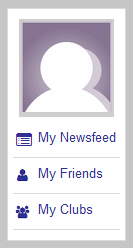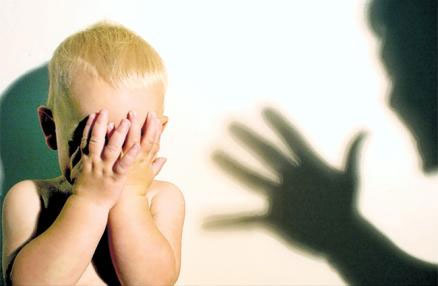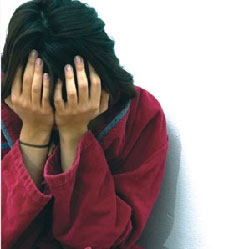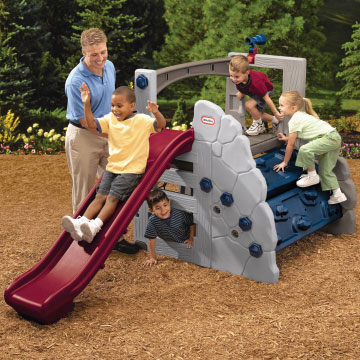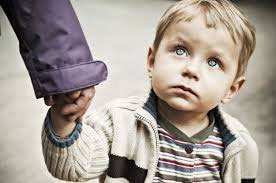Manyhouseholdproductscanbehazardoustohealth.Youshouldbeextracarefulabouthowyoucankeepyourchildrenawayfromsuchproducts.Herearesomecommonpoisonsandhowtomakesureyourchildstayssafe.Yourhouseisfullofchemicalslikemedicines,cleaningsupplies,insecticides,etc.Adultsknowwhatsubstancesaredangeroustothemandhencestayawayfromthesechemicals.However,ayoungchildhasnoideaofwhatdangermeans.Heenjoysexploringhissurroundingsandlovestotastewhatheperceivesasnewfoods.Thismeansheisatriskofaccidentalpoisoning.Therefore,youmusttakeextracaretoensurethatallpotentialhazardsareplacedoutofhisreach.Itisessentialtohaveproperknowledgeaboutsuchproductsforsafeguardingyourchildrenfromthem.InthisarticleBasicrulesforhazardousmaterialsMedicinesAlcoholandalcoholbasedproductsPlantsBasicrulesforhazardousmaterialsIfyouarebuyinganymaterialsorsupplies,alwayschoosetheleasthazardousoption.Youmayhavetopayalittlemorefortheseproductsbutthesafetybenefitsareworthit.Inthecaseofmaterialssuchaskerosene,paintthinners,polishes,etc.donotbuytheminbulk.Buyonlyasmuchasyourtaskrequires.Whenyoufinishwiththematerials,disposeoftheremainderinasafemanner.Avoidstoringthesesubstancesincups,softdrinkbottles,orcans.Yourchildassociatescupsandbottleswithfoodandwillbetemptedtotrytheircontents.Ifyouhaveastoreroom,checktheplacingofitscontents.Keepharmfulsubstanceslikesoappowder,detergent,etc.inlockedcupboardsorcabinetsthataremountedhighonthewall.Thestoreroomdooritselfshouldhaveachildsafetylatchonitsothatyourchildcannotenterthestoreroominyourabsence.Takingsuchstepisessentialforsafeguardingyourchildformrisks.MedicinesMedicinesarethechiefcauseofaccidentalpoisoningcases.Nowadays,almostallmedicinebottlescomewithchild-resistantcaps.However,child-resistantandchildproofarenotthesame.Achild-resistantcapmerelyimpliesthatittakesachildmorethanfiveminutestoopenthebottle.Alwayskeepmedicinesintheiroriginalcontainerssothatyoucanidentifythemeasily.Medicinesshouldbekeptinaplaceachilddoesnotknowaboutandcannotreach.Avoidkeepinganymedicationonakitchencountertoporyourbedsidetablesincebothoftheseareeasilyaccessibletoyourchild.Keepthemoutofthebathroomaswell.Thebathroomenvironmentisusuallymoistandslightlywarm.Thiscancauseachemicalreactioninthemedicineitselforincreasedisintegrationoftablets.Itisbesttostoreallmedicinesinsideabox,whichcanbelocked.Keeptheboxinaplacethatisinaccessibletoyourchild.Everysixmonths,reviewthemedicinesintheboxanddisposeofthosepillswhicharepasttheirexpirydateaswellastheoneswhichshowsignsofdegradation.Alcoholandalcohol-basedproductsAlcoholisanotherhazardforyourchild.Childrenaremoresensitivetoalcoholthanadultsare,soconsumptionofevenasmallamountcancauseharmfuleffects.Alcoholisatoxinforyoungchildren.Besidescausingdrunkenness,itcanalsoinduceseizures.Excessconsumptionofalcoholleadstocomaandcanevenresultindeath.Ifyoukeepalcoholathome,ensurethatitiskeptinalockedcabinetandthatthekeysarestoredinasafeplace.Alcohol-basedproductssuchasmouthwashes,scents,aftershavesandcolognesshouldalsobekepttrackof.Placethemonahighshelfwhereyourchildcannotgetholdofthem.Avoidsimplyleavingthemonthebathroomcounter.PlantsSomehouseholdplantscanbepotentiallypoisonoustochildren,thoughnotnecessarilyfatal.However,theycanstillcauseallergicreactionsormakeyourchildviolentlyill.Ifyoukeepplantsinyourhome,youshouldbeabletoidentifythemandknowiftheyarepoisonousornot.Evenifaplantisnotpoisonous,itshouldstillbeplacedoutofreachofyourchild.Thisistopreventyourchildfromgettingtooclosetoitandingestinganypartsoftheplant.Inspiteoftakingallthepossibleprecautions,yourchildmaystillcomeincontactwithharmfulsubstances.Ifanaccidentalpoisoningoccurs,donotpanic.Immediatelycontactyourchildsdoctor,whowillprovidethenecessarytreatment.
Many household products can be hazardous to health. You should be extra careful about how you can keep your children away from such products. Here are some common poisons and how to make sure your child stays safe. Your house is full of chemicals like medicines, cleaning supplies,
insecticides, etc. Adults know what substances are dangerous to them and hence stay away from these chemicals. However, a young child has no idea of what danger means. He enjoys exploring his surroundings and loves to taste what he perceives as new foods. This means he is at risk of accidental poisoning. Therefore, you must take extra care to ensure that all potential hazards are placed out of his reach. It is essential to have proper knowledge about such products for safeguarding your
children from them.
Basic rules for hazardous materials
If you are buying any materials or supplies, always choose the least
hazardous option. You may have to pay a little more for these products but the safety benefits are worth it. In the case of materials such as kerosene, paint thinners, polishes, etc. do not buy them in bulk. Buy only as much as your task requires. When you finish with the materials, dispose of the remainder in a safe manner. Avoid storing these substances in cups, soft drink bottles, or cans. Your child associates cups and bottles with food and will be tempted to try their contents.
If you have a store room, check the placing of its contents. Keep harmful substances like soap powder, detergent, etc. in locked cupboards or cabinets that are mounted high on the wall. The store room door itself should have a child safety latch on it so that your child cannot enter the store room in your absence. Taking such step is essential for safeguarding your child form risks.
Medicines
Medicines are the chief cause of accidental
poisoning cases. Nowadays, almost all medicine bottles come with child-resistant caps. However, child-resistant and childproof are not the same. A child-resistant cap merely implies that it takes a child more than five minutes to open the bottle. Always keep medicines in their original containers so that you can identify them easily.
Medicines should be kept in a place a child does not know about and cannot reach. Avoid keeping any medication on a kitchen countertop or your bedside table since both of these are easily accessible to your child. Keep them out of the bathroom as well. The bathroom environment is usually moist and slightly warm. This can cause a chemical reaction in the medicine itself or increase disintegration of tablets.
It is best to store all
medicines inside a box, which can be locked. Keep the box in a place that is inaccessible to your child. Every six months, review the medicines in the box and dispose of those pills which are past their expiry date as well as the ones which show signs of degradation.
Alcohol and alcohol-based products
Alcohol is another hazard for your child. Children are more sensitive to alcohol than adults are, so consumption of even a small amount can cause harmful effects. Alcohol is a toxin for young children. Besides causing drunkenness, it can also induce seizures. Excess consumption of alcohol leads to coma and can even result in death.
If you keep alcohol at home, ensure that it is kept in a locked cabinet and that the keys are stored in a safe place. Alcohol-based products such as mouthwashes, scents, aftershaves and colognes should also be kept track of. Place them on a high shelf where your child cannot get hold of them. Avoid simply leaving them on the bathroom counter.
Plants
Some household plants can be potentially poisonous to children, though not necessarily fatal. However, they can still cause allergic reactions or make your child violently ill. If you keep plants in your home, you should be able to identify them and know if they are poisonous or not. Even if a plant is not poisonous, it should still be placed out of reach of your child. This is to prevent your child from getting too close to it and ingesting any parts of the plant.
In spite of taking all the possible precautions, your child may still come in contact with harmful substances. If an accidental poisoning occurs, do not panic. Immediately contact your child's doctor, who will provide the necessary treatment.
